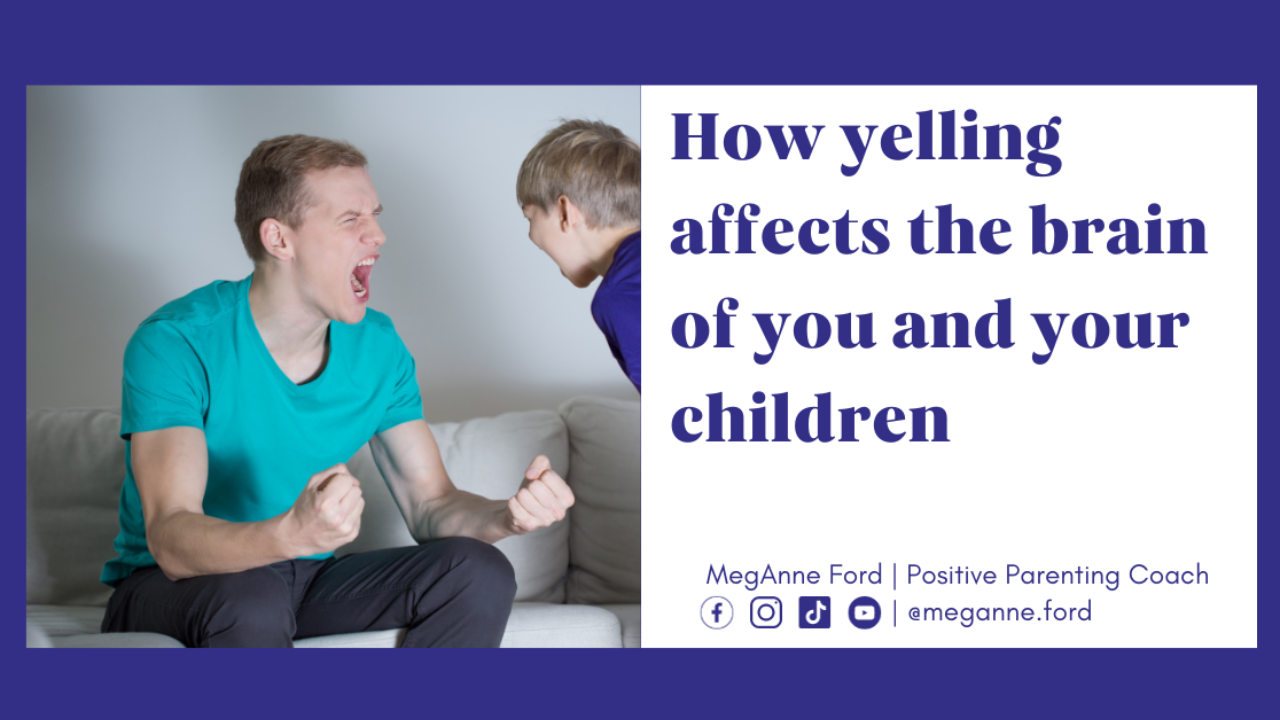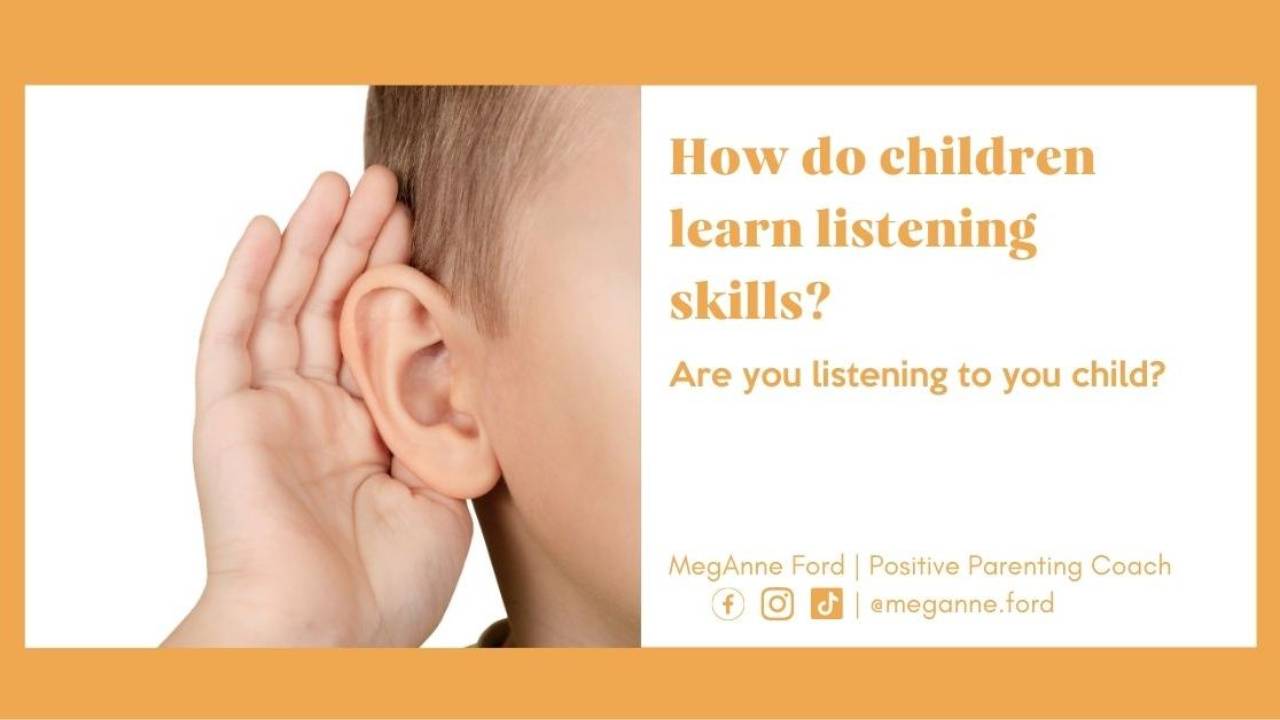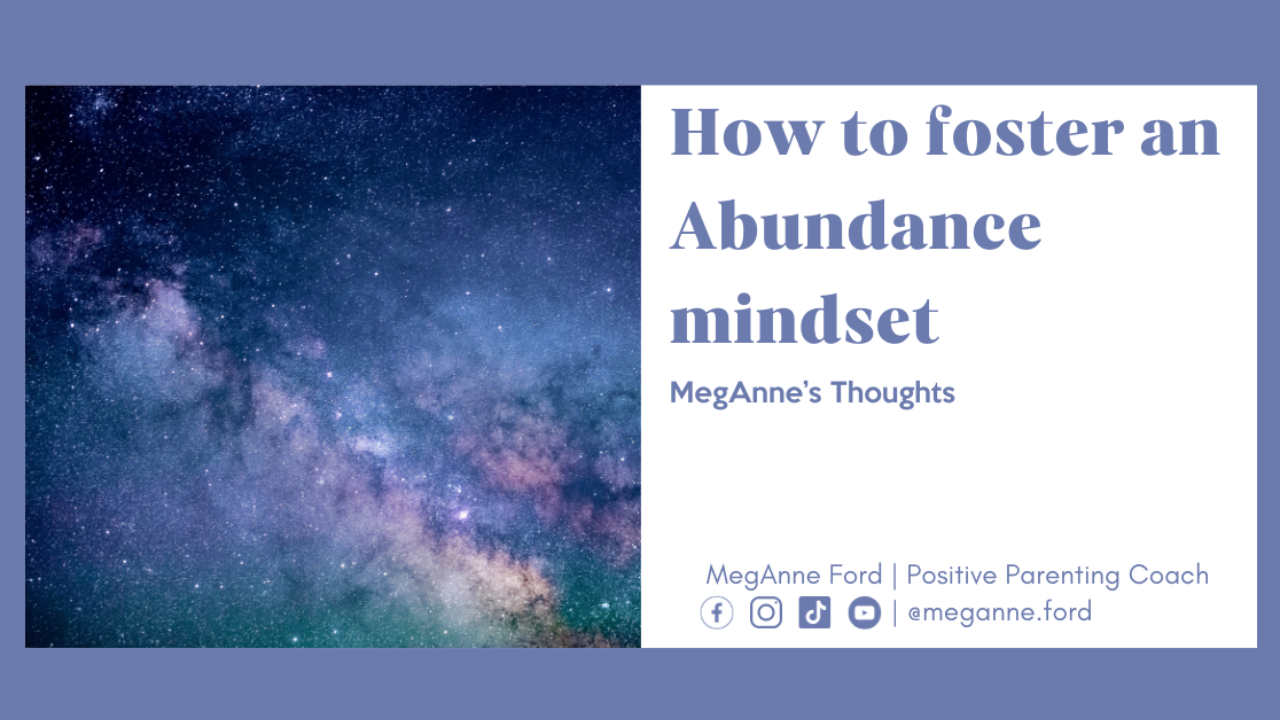
How yelling affects the brain of you and your children.
Jun 17, 2024
Hi, I'm MegAnne. I have a problem with yelling, and we are going to discuss how yelling affects the brain.
Takeaways
- Yelling, though it might feel like a quick fix, leaves a lasting impact on both the person yelling and the one being yelled at.
- Yelling can trigger a stress response in the brain, inhibiting emotional and logical functions over time.
- It can lead to the internalization of negative beliefs in children, affecting their self-esteem and self-worth.
- Yelling teaches children that they need to be yelled at before taking action, perpetuating an unhealthy cycle of communication.
I am not saying I do not want to do it sometimes. I yell when I feel out of control, angry, and want authority. I've learned that it robs me of authority, hurts my relationships, and leaves me feeling like crap. I've been on a journey of learning and practicing healthier coping tools and spend my days helping caregivers (parents, teachers, nannies, etc.) learn and practice the same.
As a parenting coach, I have made it my life mission to support parents in learning how to navigate difficult times in their homes.
Client, Mother of 3 a Success Story
"Yelling was always just something that happened. I was the mom that felt it was the only way to get things done.
The C.L.E.A.R. Method allows me to reflect more on my actions and how these impact my family. I have intentionally worked not to yell as much, replacing the tool of yelling with the more effective parenting stategries, including the C.L.E.A.R. Method. Now, when fractures happen, I seek to repair them and not just deny/forget about them."
This NY Times article, "Why You Should Stop Yelling at Your Kids," made big waves in the parenting community.
So, let's start the conversation. Why should you stop yelling at your children, and how does yelling affect the brain?
How yelling affects the brain, the yeller
Verbal abuse is so much more than getting scolded. Pause. To be clear, I'm not talking about yelling a warning of imposing danger at your children. I'm talking about the act of yelling as behavior modification when we choose to yell because the outcome does not match the expectation, and we feel frustrated!
To the yeller, it can be a strong release. But I want to explore what happens to the person being yelled at. It's not only the act of yelling that leaves an impact but the volume, tone, duration, consistency, insults, affect, and feelings of abandonment that are byproducts of yelling.
To the yeller, "It's working," but I want to explore what might be happening to the person being yelled at. I believe that if more people understood what they exchanged for in that quick win, they would give up yelling immediately.
Let's start with why we yell. To be quite frank, it's easy. It requires no restraint, and it can be perceived as highly effective. It's how you were taught to express your anger and frustration if you're like me. Fear can be a very effective motivation tool.
However, I warn that when using fear, what can be left in the ashes is not something we want long-term.
Below, we're going to explore three hidden results of yelling.
What happens to your kid's brain when you yell at them?
A stressed-out brain
Did you know that your brain checks for safety five times every second?
In the background, our reptilian brain is constantly scanning and answering the question, "Am I safe?" When the answer is "No!" our brain goes into protection mode and engages in the fight, flight freeze response. Our brain's emotional and logical parts are turned off, and our brain goes into protection mode. Yelling can trigger this response immediately.
In a 2014 study, researchers wanted to explore the results of the long-term effects of childhood trauma. They discovered that the amount of cortisol in our brains increases when exposed to stressful images, sending our brain into a stressed mode. Without remedy, our brains will start to function at a stress baseline, inhibiting the growth and function of the brain's more emotional and logical parts.
Internalized negative beliefs
Whenever I give an in-person workshop, my favorite go-to activity comes from Positive Discipline, called "Competent Giant." This activity requires one adult to sit on the ground (the child) and one adult to stand over (the parent). Then, the parent standing starts to scold the child while shaking their finger.
Parent: "I can't believe you did it again! We talked about this a thousand times. I can't believe you did it again! Go to your room!"
Afterward, we process what everyone is thinking, feeling, and deciding. The emotions that come up can sometimes be quite eye-opening. While doing this activity with a group of strangers, the "child" shared,
'Child': "I want to cry. I am feeling sad. And I think I'm not a good person. I'm a bad kid."
Feeling like: "not knowing," "wrong," "bad," and "not enough."
The parent playing the child went on to share, I don't want my daughter to feel like this. They didn't realize how quickly, even while role-playing with a stranger, those beliefs would be internalized and fostered.
Client, Mother of 3 Success Story
"I was a pressure cooker. Once I let out all of the steam (yelling), that's when the shame spiral would start; 'there I go again,' 'what's wrong with me?'
Yelling was my most used tool. Unfortunately, it also felt like it was "out of my control." This felt terrifying! I would try not to yell, but it kept happening no matter what I did.
The cycle would begin at the top, and the result was the same. I stumbled across one of MegAnne's Monday morning intentions on TikTok. I finally saw the light at the end of a very dark tunnel that I thought would never come. She opened my eyes to a whole new perspective.
I invested my time, energy, and money in learning new skills from MegAnne, and I finally found sustainable relief!"
Does yelling at your child affect them?
Teaching children "I don't mean it unless I yell." and "This is what you do when you're feeling mad."
I'm going to be direct. Children are always watching and learning from their environment. Their brains constantly scan to check if they are safe, using the responses as a foundation and making decisions about their capabilities and connections. When we rely on yelling as a behavior modification tool, children learn a couple of things:
"I don't mean it until I yell."
"This is what you do when you're feeling mad."
They start to practice this tool in their own lives. With you, their friends, their challenges, and their future families.
Is it too late to stop yelling at my child?
No, it is not too late for you to stop yelling at your child, and it is going to take some work to get there.
You might think, "My children won't listen to me unless I yell." I would say you're right.
They have been trained to ignore the first 25 times you say something and hold tight until they BLOW- then they mean it, and it's time to act. This is the same for reminding, nagging, and rescuing.
By using a reflective process to ask yourself, "What were they learning?" you can start to pivot into working towards what you want your child to learn through the challenge. Write them down, post them up, and remind yourself why doing the hard work of emotional processing is worth it.
As a parenting coach with online parenting classes, I work with parents who are willing and ready to do work. It is not easy, but it is rewarding!
I grew up with yellers and have tested it out many times. I have spent my whole career working with children and parents and have seen almost everything. I have felt anger MANY times. As soon as I decided to give up yelling, what I unlocked in myself was strength, control, and composure. I work hard to stay engaged in moments of stress. The result in my life is priceless. Learning that my words can hurt or heal was a lifesaver.
I would have yelled myself into isolation. I would have yelled myself out of a job. I would be stressed out, which causes more stress around me. I didn't want to live like that anymore.
But yelling was a tool, and it is a tool. I was glad to give up. I was giving up yelling, which allowed me to open up and learn more about myself and the others around me. It allowed me to learn how to release anger and frustration in more healthy ways. Giving up yelling has given me my life back.
It is tremendously hard to face a trigger and circumvent it. If you can trust one thing, trust that I fully understand how difficult this work is. The difficulty of this work propelled me to become a parent coach. To offer the space and support to aid in making this work more accessible. Not easy, just easier. And less lonely.
I will continue to research and find new studies that help us understand how yelling affects the brain. I believe that when we understand why something is not working, it is easier to stop doing that thing.
It is not an easy task to stop yelling at your kids, but it is doable! You can do hard things. Check out the Free Classes I offer below to start working towards a calm and connected home today!










